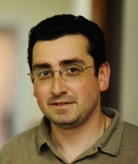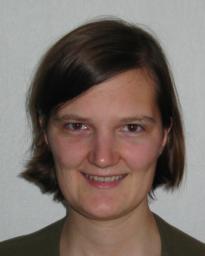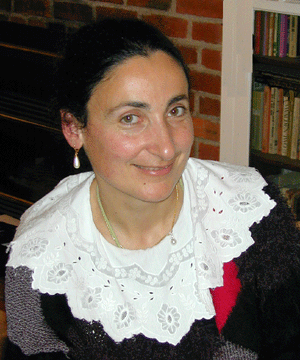2017 Looking at People CVPR/IJCNN Coopetition
Challenge Jury

Leonid Sigal
Disney Research Pittsburgh
lsigal@disneyresearch.com
Leonid Sigal was born in Kiev, Ukraine. He is a Senior Research Scientist at Disney Research Pittsburgh, in conjunction with Carnegie Mellon University. Prior to this he was a postdoctoral fellow in the Department of Computer Science at University of Toronto. He completed his Ph.D. under the supervision of Prof. Michael J. Black at Brown University; he received his B.Sc. degrees in Computer Science and Mathematics from Boston University (1999), his M.A. from Boston University (1999), and his M.S. from Brown University (2003). From 1999 to 2001, he worked as a senior vision engineer at Cognex Corporation, where he developed industrial vision applications for pattern analysis and verification. His work received the Best Paper Award at the Articulate Motion and Deformable Objects Conference in 2006 (with Prof. Michael J. Black).

Jeffrey Cohn
University of Pittsburgh, Pittsburgh, United States of America
jeffcohn@pitt.edu
Jeffrey Cohn is Professor of Psychology and Psychiatry at the University of Pittsburgh and Adjunct Professor of Computer Science at the Robotics Institute at Carnegie Mellon University. He leads interdisciplinary and inter-institutional efforts to develop advanced methods of automatic analysis and synthesis of facial expression and prosody; and applies those tools to research in human emotion, social development, non-verbal communication, psychopathology, and biomedicine. His research has been supported by grants from the U.S. National Institutes of Health, National Science Foundation, Autism Foundation, Office of Naval Research, and Defense Advanced Research Projects Agency among other sponsors. He has co-chaired the IEEE International Conference on Automatic Face and Gesture Recognition (FG 2017, FG2015, and FG2008), the International Conference on Affective Computing and Intelligent Interaction (ACII 2009), and the International Conference on Multimodal Interfaces (ACM 2014). He is a co-editor of IEEE Transactions in Affective Computing (TAC) and has co-edited special issues on affective computing for the Journal of Image and Vision Computing, Pattern Recognition Letters, Computer Vision and Image Understanding, and ACM Transactions on Interactive Intelligent Systems.

Sergio Escalera
Computer Vision Center (UAB) and University of Barcelona, Spain
sergio.escalera.guerrero@gmail.com
Sergio Escalera is Full Professor at the Department of Mathematics and Informatics, Universitat de Barcelona, where he is the head of the Informatics degree. He is ICREA Academia. He leads the Human Pose Recovery and Behavior Analysis Group. He is Distinguished Professor at Aalborg University. He is vice-president of ChaLearn Challenges in Machine Learning, leading ChaLearn Looking at People events. He is also Fellow of the ELLIS European Laboratory for Learning and Intelligent Systems working within the Human-centric Machine Learning program. He participated in several international funded projects and received an Amazon Research Award. He has published more than 300 research papers and received a CVPR best paper award nominee and a CVPR outstanding reviewer award.

Thomas B. Moeslund
Aalborg University, Aalborg, Denmark
tbm@create.aau.dk

Hugo Jair Escalante
INAOE, México
hugojair@inaoep.mx
Hugo Jair Escalante is researcher scientist at Instituto Nacional de Astrofisica, Optica y Electronica, INAOE, Mexico. Previously, he was assistant professor at the Graduate Program on Systems Engineering at UANL. He holds a PhD in Computer Science, for which he received the best PhD thesis on Artificial Intelligence 2010 award (Mexican Society in Artificial Intelligence). He was granted the best paper award of the International Joint Conference on Neural Networks 2010 (IJCNN2010). He is secretary and member of the board of directors of ChaLearn, The Challenges in Machine Learning Organization, a non-profit organism dedicated to organizing challenges, since 2011. Also, he is member of the board of the CONACYT Network on Applied Computational Intelligence, regular member of AMEXCOMP and member of the National System of Researchers (SNI). Since 2017, he is editor of the Springer Series on Challenges in Machine Learning, a new book series focused on academic competitions within machine learning and related fields. He has been involved in the organization of several challenges in computer vision and machine learning, collocated with top venues in machine learning and computer vision, see http://chalearnlap.cvc.uab.es/. He has served as co-editor of special issues in IJCV, IEEE TPAMI, and IEEE Transactions on Affective Computing. He has served as area chair for NIPS 2016 and NIPS 2017, and has been member of the program committee of venues like CVPR, ICPR, ICCV, ECCV, ICML, NIPS, IJCNN. His research interests are on machine learning, evolutionary computing and its applications on language and vision.

Tinne Tuytelaars
Katholieke Universiteit Leuven, Leuven, Belgium
tinne.tuytelaars@esat.kuleuven.be
I received a Master of Electrical Engineering from the K.U. Leuven , Belgium in 1996. Since my graduation, I've been working at the VISICS -lab within ESAT - PSI of the Katholieke Universiteit Leuven , where I defended my PhD on december 19, 2000, entitled "Local Invariant Features for Registration and Recognition". During most of 2006 and early 2007, I was also parttime (20%) visiting scientist at the LEAR group of INRIA in Grenoble. Summer 2008, I visited the Making Sense from Data group at NICTA in Canberra, Australia. Summer 2010 I visited Trevor Darrell's group at ICSI/EECS UC Berkeley. Since October 2008, I'm appointed research professor (BOF-ZAP) at the K.U.Leuven.

Daniel Gatica-Perez
IDIAP, Switzerland
daniel.gatica-perez@epfl.ch
Prof. Daniel Gatica-Perez directs the Social Computing Group at Idiap Research Institute and the Swiss Federal Institute of Technology in Lausanne (EPFL), Switzerland. His work integrates methods from ubiquitous computing, social media, machine learning, and social sciences to understand human and social behavior in everyday life. His research has studied connections between behavioral cues and human traits and states in social video and face-to-face interaction.

Xavier Baró
Universitat Oberta de Catalunya, Barcelona, Catalonia
xbaro@uoc.edu
Xavier Baró received his B.S. degree in Computer Science at the Universitat Autònoma de Barcelona (UAB) in 2003. In 2005 he obtained his M.S. degree in Computer Science at UAB, and in 2009 the Ph.D degree in Computer Engineering. At the present he is a lecturer and researcher at the IT, Multimedia and Telecommunications department at Universitat Oberta de Catalunya (UOC). He is involved on the teaching activities of the Computer Science, Telecommunication and Multimedia degrees of the UOC, and collaborates as assistant professor on the teaching activities of the Computer Science degree at the Applied Mathematics and Analysis of the Universitat de Barcelona (UB). In addition, he is involved on the Interuniversity master on Artificial Intelligence (UPCUBURV). He is cofounder of the Scene Understanding and Artificial Intelligence (SUNAI) group of the UOC, and collaborates with the Computer Vision Center of the UAB, as member of the Human Pose Recovery and Behavior Analysis (HUPBA) group. His research interests are related to machine learning, evolutionary computation, and statistical pattern recognition, specially their applications to generic object recognition over huge cardinality image databases.

Isabelle Guyon
University Paris-Saclay, France and ChaLearn USA
isabelle@clopinet.com
Isabelle Guyon ( http://guyon.chalearn.org/ ) is chaired professor in “big data” at the Université ParisSaclay, specialized in statistical data analysis, pattern recognition and machine learning. She is one of the cofounders of the ChaLearn Looking at People (LAP) challenge series and she pioneered applications of the MIcrosoft Kinect to gesture recognition. Her areas of expertise include computer vision and and bioinformatics. Prior to joining ParisSaclay she worked as an independent consultant and was a researcher at AT&T Bell Laboratories, where she pioneered applications of neural networks to pen computer interfaces (with collaborators including Yann LeCun and Yoshua Bengio) and coinvented with Bernhard Boser and Vladimir Vapnik Support Vector Machines (SVM), which became a textbook machine learning method. She worked on early applications of Convolutional Neural Networks (CNN) to handwriting recognition in the 1990’s. She is also the primary inventor of SVMRFE, a variable selection technique based on SVM. The SVMRFE paper has thousands of citations and is often used as a reference method against which new feature selection methods are benchmarked. She also authored a seminal paper on feature selection that received thousands of citations. She organized many challenges in Machine Learning since 2003 supported by the EU network Pascal2, NSF, and DARPA, with prizes sponsored by Microsoft, Google, Facebook, Amazon, Disney Research, and Texas Instrument. Isabelle Guyon holds a Ph.D. degree in Physical Sciences of the University Pierre and Marie Curie, Paris, France. She is president of Chalearn, a nonprofit dedicated to organizing challenges, vicepresident of the Unipen foundation, adjunct professor at NewYork University, action editor of the Journal of Machine Learning Research, editor of the Challenges in Machine Learning book series of Microtome, and program chair of the upcoming NIPS 2016 conference.

Julio C. S. Jacques Junior
University of Barcelona (UB), Spain
juliojj@gmail.com
Julio C. S. Jacques Junior is an assistant professor at University of Barcelona (UB) and a research collaborator within Computer Vision Center (CVC). Member of the Human Pose Recovery and Behavior Analysis (HUPBA) group, he also collaborates within within ChaLearn and ChaLearn (LAP) Looking at People. He helped to organize workshops and challenges at high impact conferences (e.g., NeurIPS, CVPR, ECCV, ICCV). His research interests include, among others, computer vision-based applications with a particular focus on visual human behavior analysis.
Umut Guclu
u.guclu@donders.ru.nl
Yagmur Gucluturk
y.gucluturk@donders.ru.nl
Nicu Sebe
University of Trento
sebe@disi.unitn.it
Efstratios Gavves
QUVA lab, University of Amsterdam
egavves@uva.nl
Gal Chechik
gal@google.com
News
January 10: CVPR 2017 competition started
Compatition on explainable impressions started and participants can enter the competiotion througth CodaLab here.